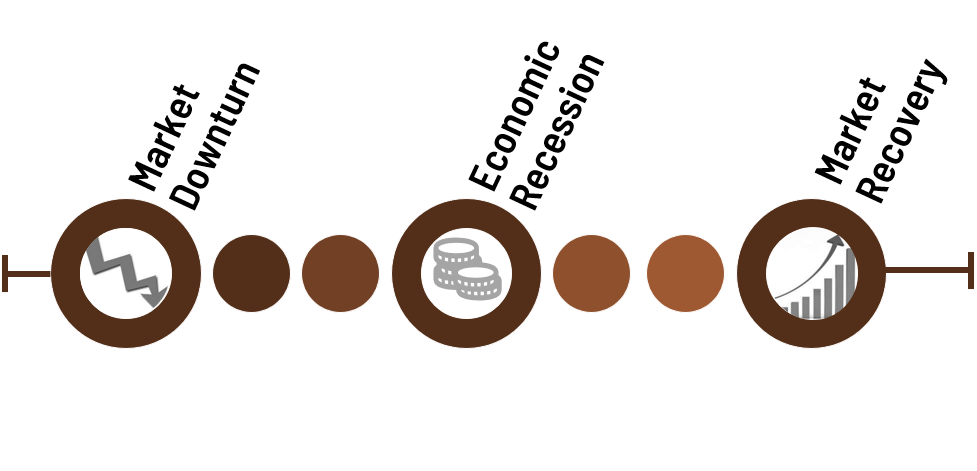As an investor, you may be observing a couple things. First, the stay-at-home orders and the timeline pertaining to COVID-19 are being extended out. Second, there is a general sense that the news is going to get worse before it gets better. So, given that, why not take some money out of the market and wait for things to start to turn around? Sit on the Sidelines? That sounds logical enough, but the problem is the market moves ahead of the overall economy. As we all know, March was a horrible month for stocks. It was one of the worst in history. But the stock market didn't move down in a straight line. Here is a video that explains our thinking:
On March 23, the S&P 500 was up nearly 10% in one day. This was the same day we received one of the worst jobs reports in history. We learned that 3.3 mil people filed for unemployment in one week, and yet the stock market soared. Why? The bad news was already priced in. Now there may be bad news that's not priced in yet, but the fact is we just don't know. Historically, the best and worst days for stocks tend to be within 2 weeks of each other. And here’s what makes it so detrimental to try to determine a bottom. A bear market is kind of like pushing a beach ball under water. When you let go, it doesn’t just gradually drift up to the surface. It pops up out of the water. Rebounds in the stock market tend to act like that. Missing the Best Days By far the best time period for stocks in recent history was the rebound in the aftermath of the financial crisis (as shown in the chart below).
 In less than 10 months, the market was up nearly 70% From March 9, 2009 through December 31, 2009, the S&P 500 Index appreciated by 67.8%. But if you missed just the five best days out of roughly 250 trading days, you would have earned only 31.8% and missed out more than half of the return. If you missed the ten best days, you would have lost out on more than three-quarters of the return. And the thing about 2009 is the headlines were still pretty awful for most of that year. In the midst of a historical surge for stocks, the ongoing economic news and jobs reports were pretty discouraging. This whole phenomenon was summed up well by famed value investor Shelby Davis decades ago. He said: "You make most of your money during bear markets, you just don't realize it at the time." And that’s exactly what we need to be aware of in a time like this. To learn more, check out our compilation of resources, tools, and content pertaining to COVID-19 at https://brownandco.com/coronavirus-resources/ Content in this material is for general information only and not intended to provide specific advice or recommendations for any individual. All performance referenced is historical and is no guarantee of future results. All indices are unmanaged and may not be invested into directly. This information is not intended to be a substitute for specific individualized tax advice. We suggest that you discuss your specific tax issues with a qualified tax advisor.
In less than 10 months, the market was up nearly 70% From March 9, 2009 through December 31, 2009, the S&P 500 Index appreciated by 67.8%. But if you missed just the five best days out of roughly 250 trading days, you would have earned only 31.8% and missed out more than half of the return. If you missed the ten best days, you would have lost out on more than three-quarters of the return. And the thing about 2009 is the headlines were still pretty awful for most of that year. In the midst of a historical surge for stocks, the ongoing economic news and jobs reports were pretty discouraging. This whole phenomenon was summed up well by famed value investor Shelby Davis decades ago. He said: "You make most of your money during bear markets, you just don't realize it at the time." And that’s exactly what we need to be aware of in a time like this. To learn more, check out our compilation of resources, tools, and content pertaining to COVID-19 at https://brownandco.com/coronavirus-resources/ Content in this material is for general information only and not intended to provide specific advice or recommendations for any individual. All performance referenced is historical and is no guarantee of future results. All indices are unmanaged and may not be invested into directly. This information is not intended to be a substitute for specific individualized tax advice. We suggest that you discuss your specific tax issues with a qualified tax advisor.